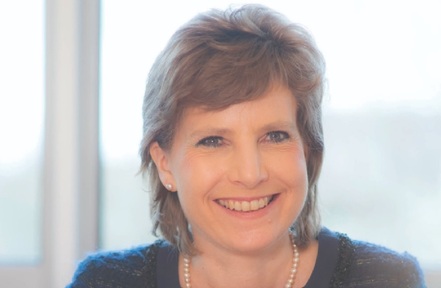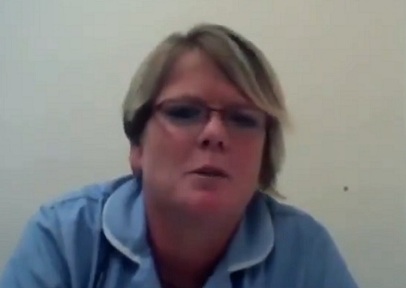Care at home chief: 'It should be illegal' for councils to buy care on the cheap
MPs have been told “it should be illegal” for councils to purchase care for less than £15 an hour and efforts to buy care on the cheap is keeping hard-working care workers low paid.

Dr Jane Townson, chief executive of the UKHCA (UK Homecare Association) commented on councils’ care rates, while giving evidence about low wages to MPs sitting on the House of Commons Health and Social Care Committee.
MPs heard about a 43 per cent staff turnover in the home care sector, which was not helped by low wages fuelled by councils’ care rates.
The UKHCA calculates the minimum price for home care this year should be £20.69. This is to be compliant with the national legal minimum wage of £8.72 and the care regulations.
Having analysed data from 139 out of the 152 local authorities, UKHCA found currently the median is £17.20. Thirteen councils are paying less than £15 an hour which the UKHCA says doesn’t even cover the NMW.
Dr Jane Townson said: “We believe it should be illegal for councils to purchase care at rates as low as that.
“When employees are paid by the minute on fee rates lower than £15 an hour, how can they possibly reward their staff?”
’Imagine’ only paying NHS nurses for each minute at patients’ bedside
The home care sector’s 43 per cent turnover “must be a nightmare for your members to cope with”, Committee chair Jeremy Hunt told Dr Townson at the meeting on 23 June.
While the UKHCA chief executive said much of the turnover happens “in the first six months” and a substantial number of people have worked in the sector for a long time, she said pay is a key factor.
Dr Townson told Jeremy Hunt: “Imagine a clinical commissioning group saying to an NHS Trust, we’re only going to pay nurses for every minute that they’re by a patient’s bedside and we’re going to electronically tag them to find out when they’re there.
“But we’re not going to pay them when they’re moving from one patient’s bed to the next. We’re not going to pay them when they’re training. We’re not going to pay them when they’re supervised.
“Imagine the outcry that would be in the NHS under those conditions. That is what home care providers have to do, are expected to do every day.
Buying care by the minute means hiring by the minute
“It’s that lack of trust…measuring care by the minute. Councils buying care by the minute - which means that providers end up having to employ by the minute. Nobody wants to do that but it’s the system that’s wrong”.
Jeremy Hunt replied: “When I was health secretary I was told that 15 minute visits had been abolished and it feels like they haven’t and so that’s definitely something we need to look into as a committee”.
Dr Townson called for the commissioning of social care services by local authorities to be ditched.
Skills for Care told MPs on the Committee that the average pay of a home care worker is £8.10 an hour.
Dr Townson said: “We do see a big difference [in pay] between the self-funded part of the market which is about 30 per cent of the total and the rest…70 per cent in the state-funded part”.
She also highlighted a “lack of security of income” as another issue with almost 60 per cent home care workers on zero-hour contracts.
‘I don’t feel valued by members of the public’ says home care worker

Care staff working tirelessly during a pandemic are feeling unappreciated by the general public too, the Committee heard.
Home care worker Melanie Cairnduff, also giving evidence to the Committee on 23 June, described her own personal experience of working during the COVID-19 pandemic.
Melanie Cairnduff told MPs: “I don’t feel valued by members of the public especially since COVID, it’s been…been tough.
“We, you know, we get tutted at because we’re in uniform out in the street. People tell us we shouldn’t have our uniforms on. They don’t understand what a domiciliary care worker does.
"We go to people’s houses. We work in our uniforms and we keep those uniforms on throughout the day. We can’t change, like you can in a [care] home. “Doing ‘dom’ care you can’t do that”. Explaining why she does her job, she said: “I don’t do it to be valued by members of the public I do it to be valued for the people I look after”.
Government advises home care sector to create 'care groups'
This week, the government issued new guidelines for home care providers.
Home care providers are advised to reduce the risk of exposure to COVID-19 for people who are ‘shielding’ by dividing the people cared for into ‘care groups’ and creating subgroups of their staff who can give care to each.
If home care providers cannot divide their workforce into subgroups for each category, they are advised to divide the workforce into two groups: one to support the ‘shielded’, the other to support ‘at risk’ groups and everyone else.
Where it is not possible to allocate care groups to specific staff subgroups, the guidance advises providers to schedule for ‘shielded’ and ‘at-risk’ individuals to be seen before people from other categories.
Staff are also advised to have remote access to regular supervision and handovers should be done remotely.
If a person receiving care or their unpaid carer wants to suspend their care due to being asked to undertake shielding, the guidance states the organisation with responsibility for developing the care plan should be informed.
All parties should ‘agree’ whether the request is appropriate and what can be done to ensure the person has access to essentials during the pandemic, e.g. food, medicines.
Councils and clinical commissioning groups are expected to support providers with the costs of extra staffing and other pandemic-incurred costs, such as PPE, time spent explaining to people with cognitive impairment why masks are being worn and extra travel costs.
To see the government's guidance (published 24 June) for the home care sector and read about the different care groups click here
Like what you read? For more news click here
Latest News
 29-Jul-24
Dementia Bus gives carehome.co.uk staff insight into life with dementia
29-Jul-24
Dementia Bus gives carehome.co.uk staff insight into life with dementia
 27-Jul-23
UK's top home care agencies in 2023 revealed
27-Jul-23
UK's top home care agencies in 2023 revealed
 30-Nov-22
A quarter of older people keep their falls secret from family
30-Nov-22
A quarter of older people keep their falls secret from family
 29-Nov-22
'Covid-19 has not gone away' say terminally ill
29-Nov-22
'Covid-19 has not gone away' say terminally ill
 28-Nov-22
IT consultant who received poor care opens 'compassionate' home care business
28-Nov-22
IT consultant who received poor care opens 'compassionate' home care business